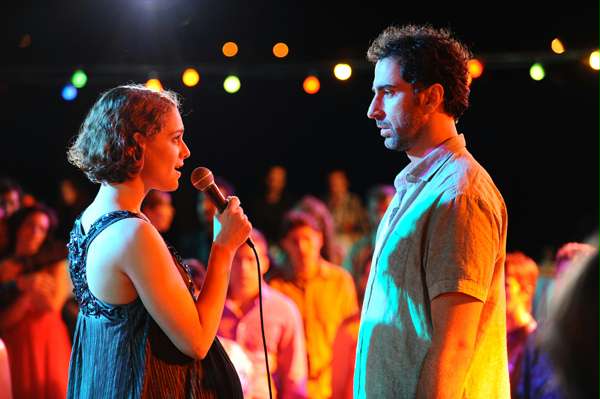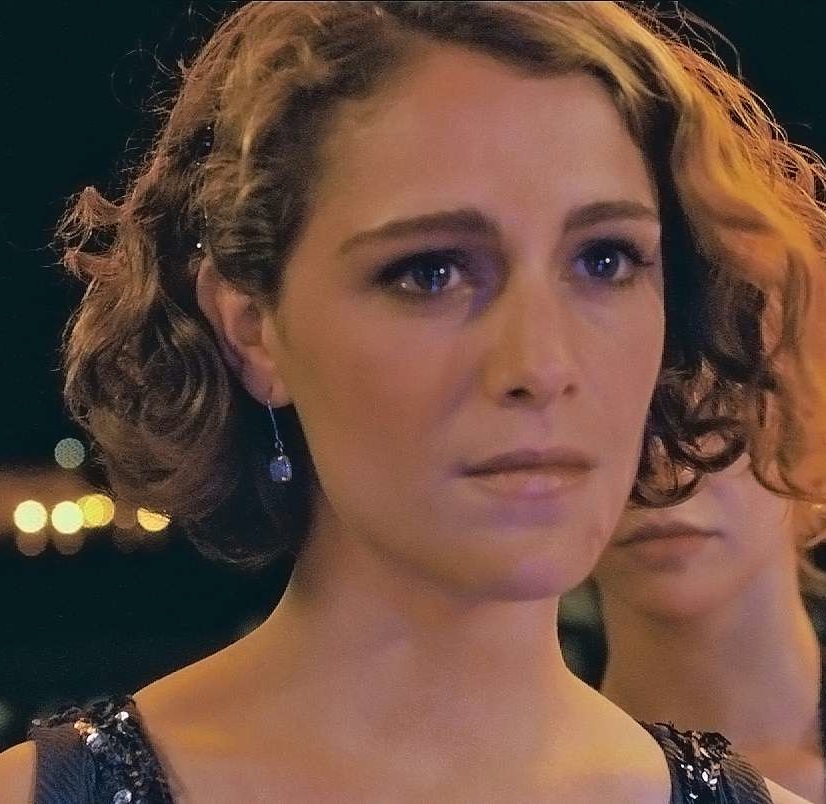By providing your information, you agree to our Terms of Use and our Privacy Policy. We use vendors that may also process your information to help provide our services. This site is protected by reCAPTCHA Enterprise and the Google Privacy Policy and Terms of Service apply.
How To Make A Movie In A Country With Virtually No Film Funding
Tina Poglajen

Jasmila Žbanić’s unflinching look at taboo topics, primarily concerning women’s experiences, includes wartime rape in “Grbavica: Land of My Dreams” and nuanced portrayals of women’s lives in both moderate and orthodox Muslim communities in “On the Path.” Both movies earned her international acclaim. Still, Bosnia’s national film budget – half a million Euros a year for the whole country, including everything from production costs to festival fees and marketing – is ridiculously small by European standards, forcing filmmakers to be imaginative and resourceful, necessarily seeking co-producers from abroad in order to make a movie.
In a recent conversation with Indiewire, Žbanić said that things started to change with the rising prominence of the Sarajevo Film Festival, especially when filmmaker Danis Tanović received an Academy Award for 2001’s “No Man’s Land.” That outcome prompted the government to establish a national film fund, but in general, filmmakers are mostly left to their own devices with collecting the necessary funds.
The challenge of going door-to-door to gather enough funds isn’t the only problem: In Bosnia, it’s hard to find film professionals to form a crew as well. The war, which left the country in political and economic ruin prompted a lot of people — including film technicians — to leave or change career tracks and prevented others from finishing their education.
So how does she do it? At the recent Locarno Film Festival, where Žbanić premiered her latest film, “Love Island” — a colorful, offbeat comedy about a Bosnian-French-Romanian ménage à trois on a scenic island in the clear blue Adriatic sea — Indiewire spoke to Žbanić about the challenges of finding funds before and after her winning the Golden bear for “Grbavica” at Berlinale in 2006. The director shared some of the lessons she had learned over the years.
Make your own politics.

Getting funds for “Love Island” was “a long and crazy story,” Žbanić’ said. The Bosnian National Film Fund rejected her application. Later, information surfaced that 80% of production funds were awarded to the production company actually owned by the president of the fund’s committee. So local filmmakers took matters into their own hands by organizing a protest, which lasted until the selection process was repeated under a new committee. Finally, the Bosnian fund managed to contribute to the film’s production.
Find other options.
Instead of having the film produced in their home country, the producers of “Love Island” were forced to look for money elsewhere. Now, “Love Island” is a Croatian production, supported by the Croatian National Film Fund, shot with Croatian actors and film crew. Later, Bosnia, Germany and Switzerland signed on as well, including funds from Eurimages and constant media support.
Know when to stand your ground.
 The problem in Bosnia, as well as in many other countries, is that what matters most is not just who you know, but who you have a good relationship with, benefiting mutually with under-the-table deals. In short, there is a lot of corruption. “Not just as a woman, but as an individual who cherishes freedom and independence, I reject these cliques,” Žbanić said. “I don’t do that.” Does she feel marginalized as a woman? “It wasn’t that,” she added. “It was because I’m not a part of certain politics. So if I’m marginalized, it’s because of that — which I like. It’s a position I choose.”
The problem in Bosnia, as well as in many other countries, is that what matters most is not just who you know, but who you have a good relationship with, benefiting mutually with under-the-table deals. In short, there is a lot of corruption. “Not just as a woman, but as an individual who cherishes freedom and independence, I reject these cliques,” Žbanić said. “I don’t do that.” Does she feel marginalized as a woman? “It wasn’t that,” she added. “It was because I’m not a part of certain politics. So if I’m marginalized, it’s because of that — which I like. It’s a position I choose.”
Know how production houses work.
Before Žbanić won the Golden Bear at the 2006 Berlin Film Festival for “Grbavica,” she had to wait for a long time to get any kind of an answer to the screenplays she sent to production houses. “It was a long and tedious process,” she said. “Once they read the script, they liked it and then it was much easier. But getting people to actually read your script, that’s the most difficult part.” So it’s probably a good strategy to get as many contacts and recommendations as possible and then investing in a compelling pitch that will draw them into the story.
Know what options are available to you as a first-time filmmaker.
Being an unknown filmmaker is hard. Still, according to Žbanić, there are some perks to it as well. “There are a lot of possibilities out there if you’re a first-time filmmaker,” she said, noting that lots of funding sources and grants exist precisely for that purpose. “People are looking for new names all of the time.”
Get resourceful.
Despite international recognition, budget was still an issue for Žbanić and her crew. In “Love Island,” there is a gorgeous colorful underwater scene with mermaids and flowers. “They told us it would cost a 100,000 Euros to shoot in a pool,” she said. So they improvised. “We did something that big production houses would never do: we created underwater flowers from toilet brushes. We had no choice but to come up with an idea that would minimize costs instead of having an expensive set design. Of course, you start by planning to have the best of everything. When you see the budget, you have to get inventive.”
Love what you do.
This one might seem obvious, but while trying to get past the obstacles of finding funds, waiting for an answer from an international support fund or getting rejected by production companies, it’s sometimes impossible not to feel exasperated. It’s a tough job and you have to be ready to make compromises, to sacrifice a lot of things and to refuse to accept rejection as a dead-end, which can only be done if you’re a 100% sure of what you’re doing. “There has to be a lot of love and passion for what you do,” Žbanić said. “You have to find a way. That’s it.”
This article is part of a series written by members of the 2014 Locarno Critics Academy, organized by Indiewire, the Film Society of Lincoln Center and the Locarno Film Festival.
By providing your information, you agree to our Terms of Use and our Privacy Policy. We use vendors that may also process your information to help provide our services. This site is protected by reCAPTCHA Enterprise and the Google Privacy Policy and Terms of Service apply.

















